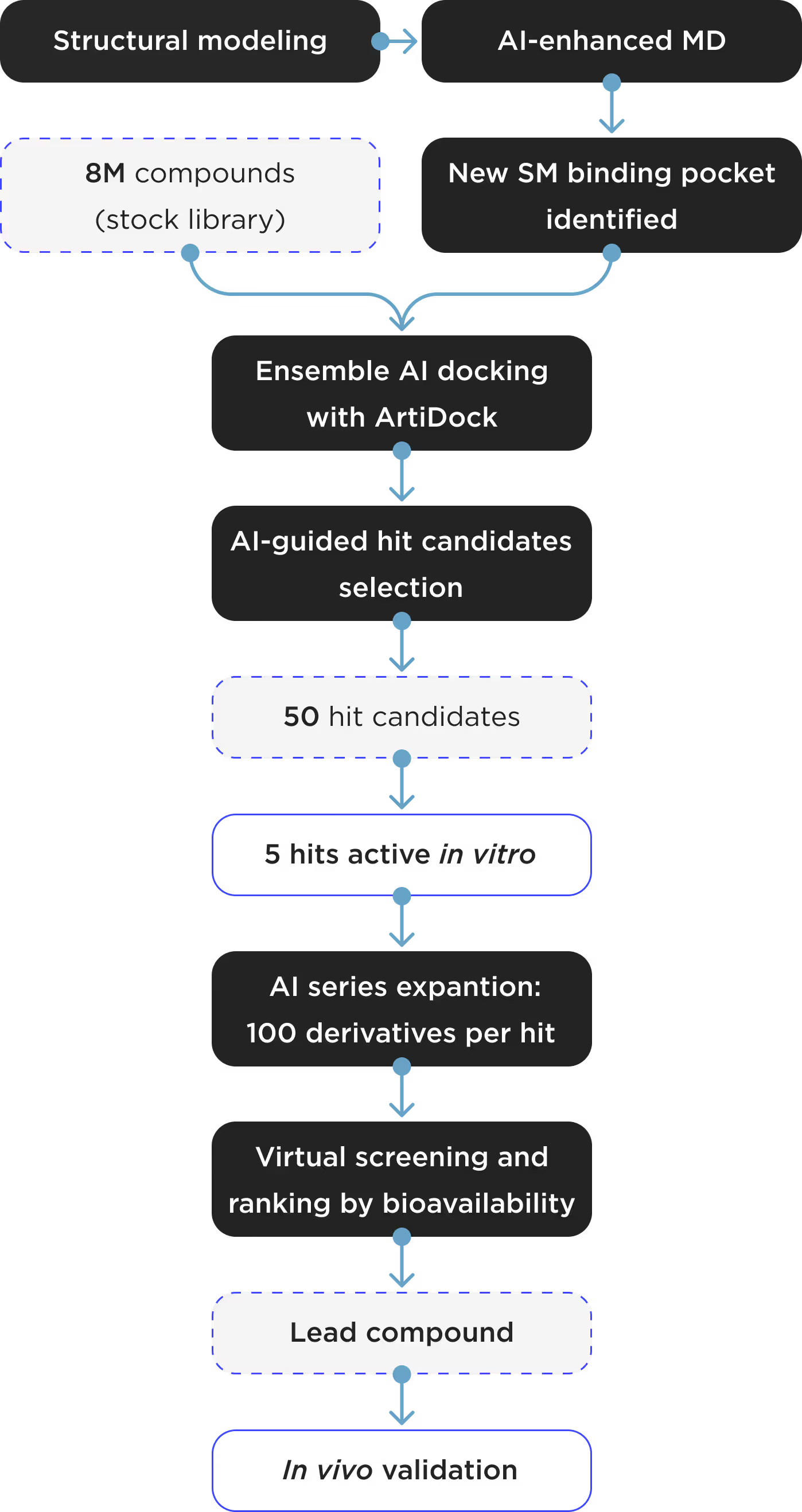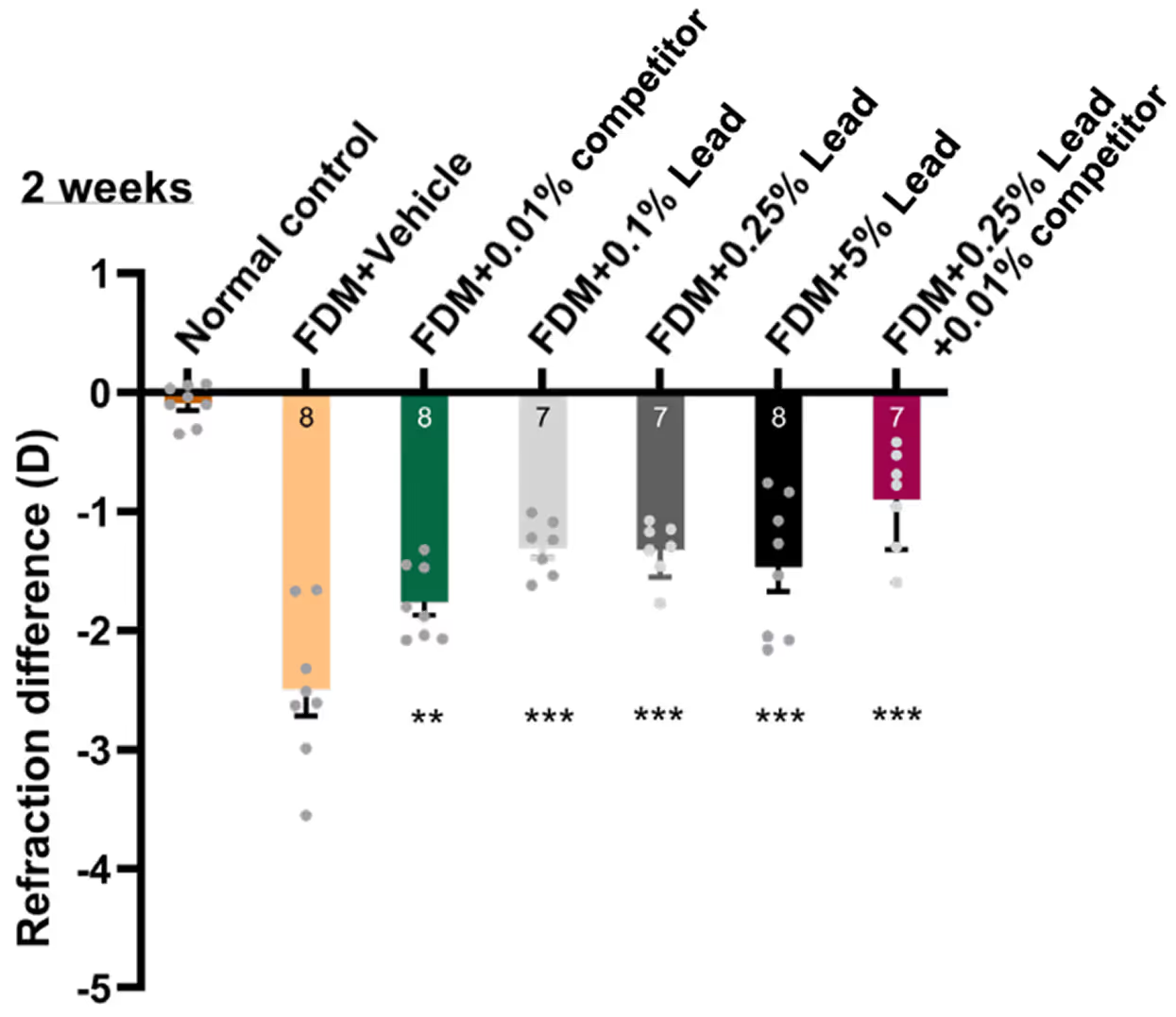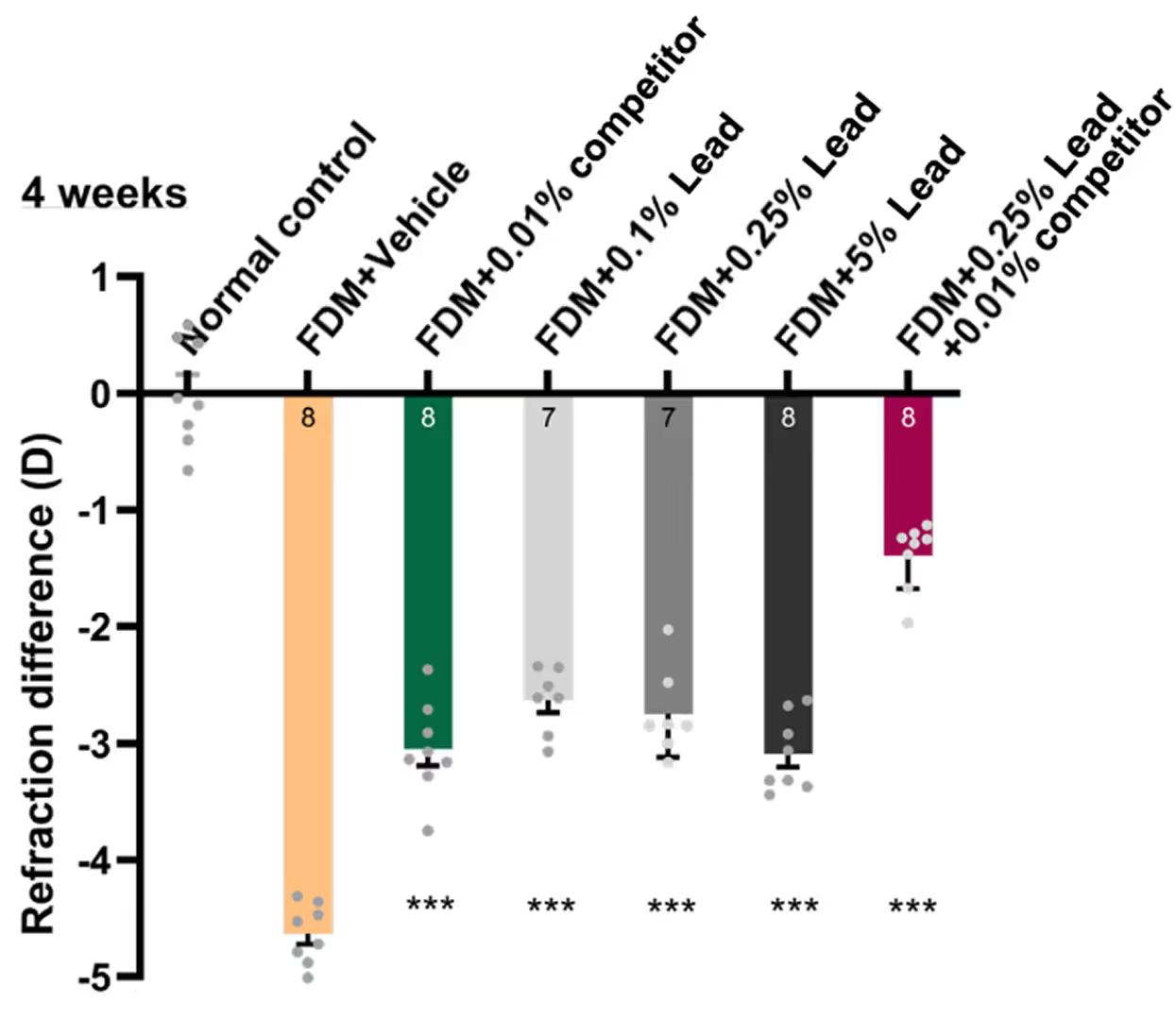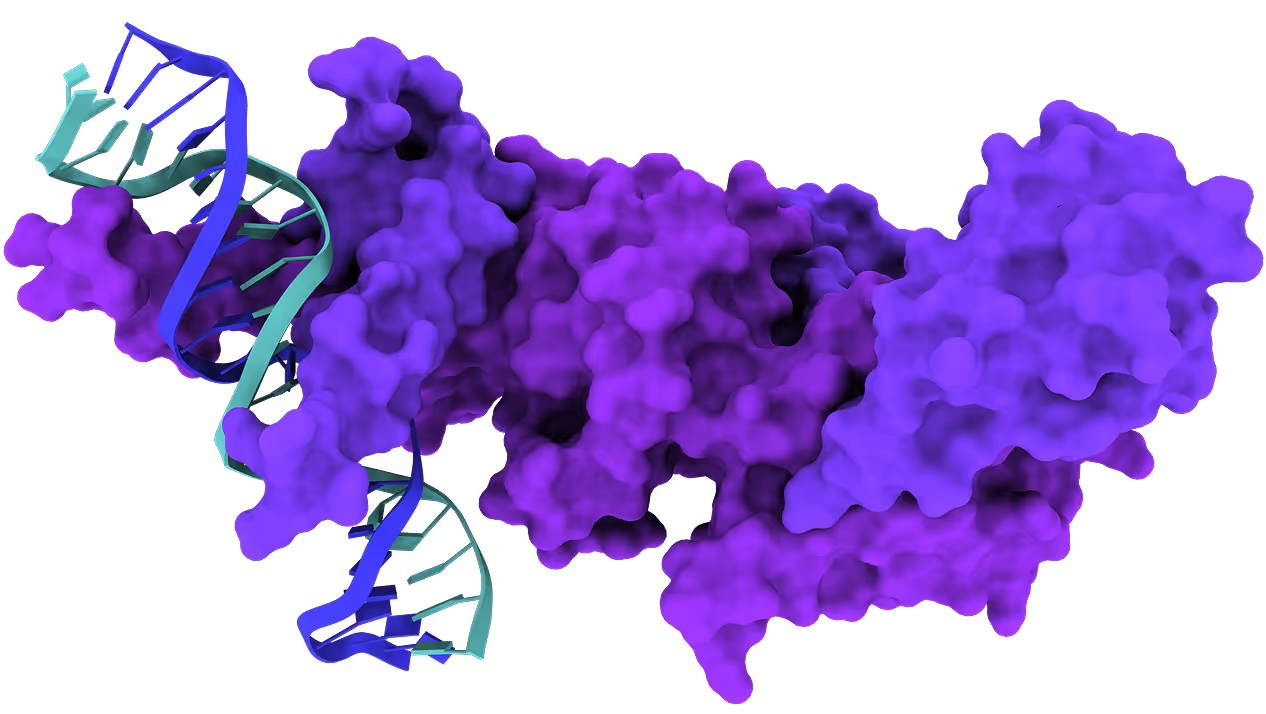8M
stock library
screened
5
hits active
in vitro
70%
myopia reduction in combined therapy
Safe in vivo
in contrast to classic therapy

01/ Background
- The target is a transcription factor subunit involved in scleral remodeling.
- The goal is to design a novel small molecule inhibitor.
- The challenge is to ensure ocular bioavailability without systemic effects.
02/ Methodology
- Target structural modelling using predicted and partial crystal structures.
- AI-powered MD and conformational ensemble generation.
- New small molecule binding pocket identified.
- 8M stock library undergone virtual screening.
- 50 candidate compounds tested in vitro (cellular assays).
- 5 hits were active in vitro.
- AI series expansion: 100 derivatives designed for each hit.
- Virtual screening and ranking by predicted ocular bioavailability.
- The lead compound subject to in vivo validation.
03/ In vivo model
- Monocular form deprivation myopia (FDM) modeled in mice.
- Eye drops were administered twice a day with a 5uL dose for 4 weeks from modelling.
- After 2 and 4 weeks, the diopter of the FDM and fellow normal eyes were tested.
04/ Validation
- Lead compound is more effective than classic therapy.
- No side effects were observed in vivo opposed to competitor.
- Promising results in combined therapy.


*Diopter of the FDM in mice at 2 and 4 weeks of treatment. Compared to FDM+Vehicle;
*p<0.05, **p<0.01, *p<0.001


